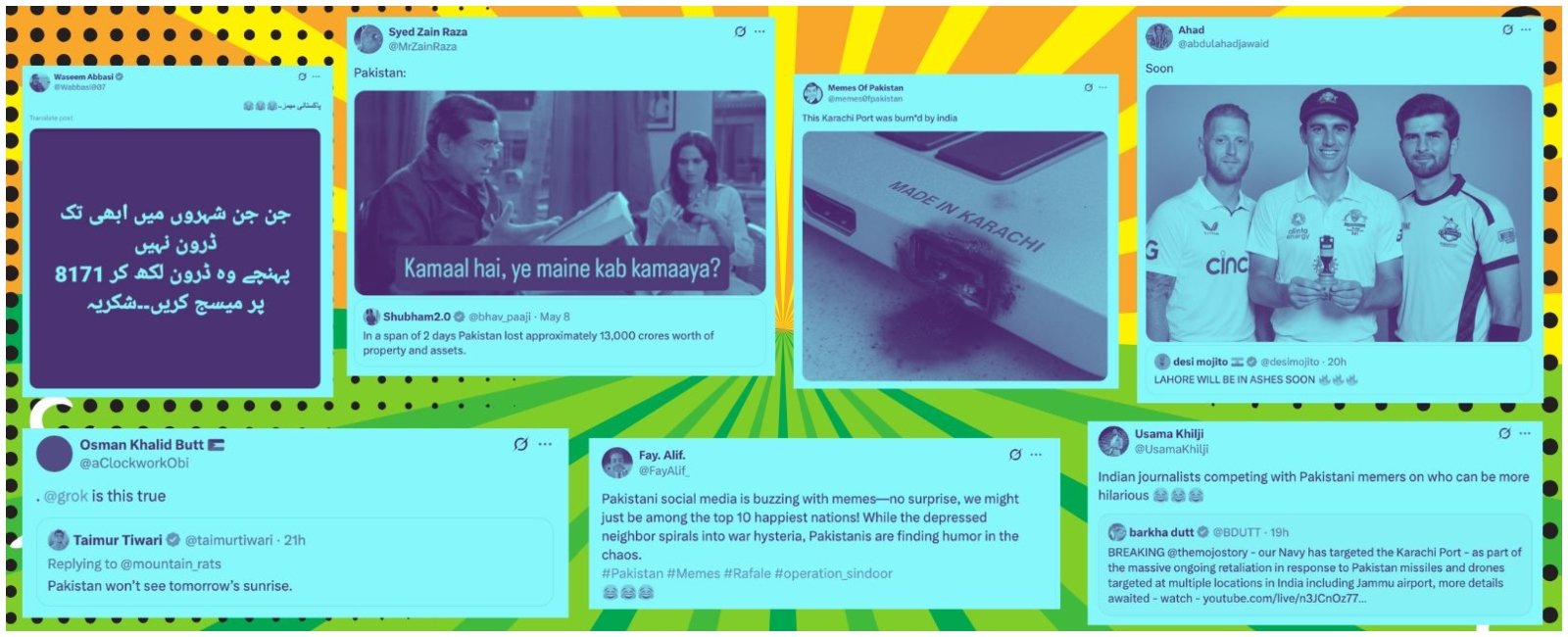Tamgha-e-Memetiaz: Honouring Pakistan's digital warriors who laugh in the face of war
Vicious comments from across the border are met with such wit and hilarity that they get under our rivals’ skin

From Malika-e-Tarranum Noor Jahan’s melodious blood-warming 1965 war anthems to today’s whimsical memes and jokes, Pakistanis’ perception of serious military conflict has undergone a remarkable transformation.
By now, everyone is pretty aware of the political climate of both India and Pakistan, and with this awareness comes the exposure to social media meme chaos.
Pakistani social media warriors, especially the Gen Zs, have used humour to prod this tense situation, making the disturbing wartime narrative a little more bearable. They showed the world that Pakistan and its people are invincible, their morale bulletproof — thanks to a prized superpower: humour-laced optimism that kicks in during almost every crisis.
Even if the world sweeps you under the rug, social media still lets you unleash all your bottled-up views. Fortunately, Pakistanis rarely waste a chance to put up a show of their razor-sharp wit and blunt sarcasm to the world. They handle every curveball of an absurdity with a larger-than-life sense of humour, tormenting their rivals and amusing their followers.
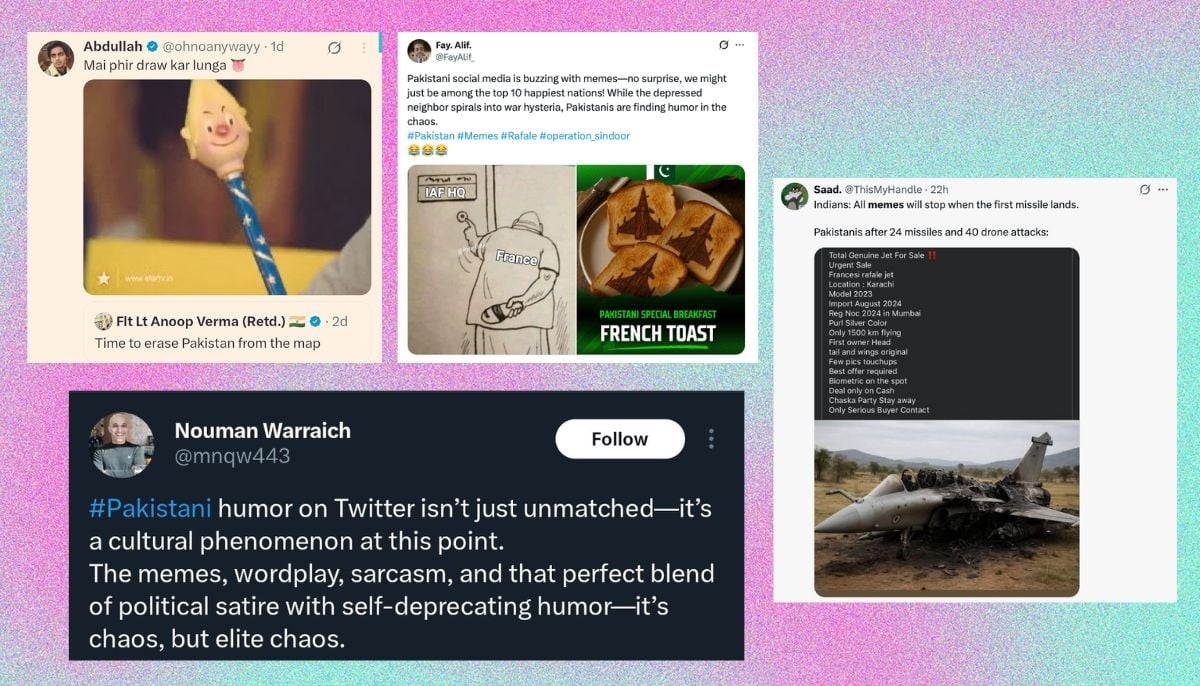
Some people might question whether the youth is being disrespectful and cold-hearted to make jokes about an attack, but believe me when I say that our people are not heartless — rather, they are so overwhelmed and desensitised that humour has become one of their basic needs to stay sane.
It’s sufficient to say that this defence mechanism has even left fabled psychoanalyst Sigmund Freud in fits. The predicaments of the subcontinent are always a very sensitive matter for the people on both sides of the divide, since they are bonded through their tragic history. However, it seems like Pakistanis have built up this wall of humour to protect themselves from political turmoil. One might say that this is their tool for survival in any national crisis.
Vicious comments from across the border are met with such wit and hilarity that they get under our rivals’ skin. Their heated media rants are answered with whimsical memes, and their military preparations are countered by our X warriors — armed with comically genius tweets. From beef biryani jokes to arguing over celebrity collaborations, Pakistanis have left everyone in stitches.
Let’s dissect this phenomenon a little.
Even on the brink of war, we possess the remarkable ability to destroy our contenders not with tanks, but with our unmatched swarm of meme missiles. But this ability came at a price. Gen Z has been constantly exposed to crises, both at the national and global level, including the pandemic lockdown, terrorism, climate-related disasters, xenophobic international policies, financial constraints, unstable government, or political unrest. Their brains have normalised such situations, and this war threat is sadly one of them. This is what cultural desensitisation looks like at a broader level.
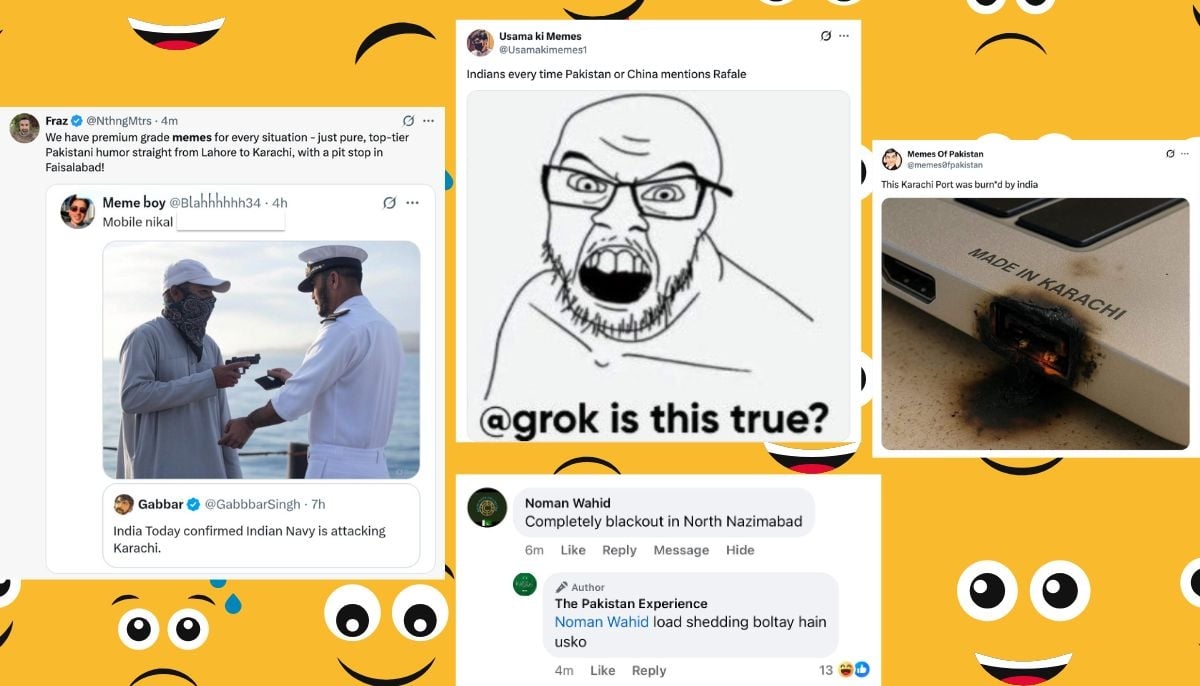
These otherwise meaningless jokes serve as a coping mechanism for the youth of Pakistan, where they are trying to push back their fears and subconsciously trying to convince themselves that they are in control. This phenomenon is known as "gallows humour". A self-deceptive reflex in which you turn to dark, self-directed, and sometimes mocking humour to grapple with tragedies and deny the impending sense of danger.
For example, when a Pakistani youth says, "If something happens, at least my exams will be cancelled," or "Let’s delay it until October; I can’t deal with a war in this scorching heat," it’s a classic example of gallows humour. It’s brave, if you ask me — being able to smile in the face of tragedy and not letting it get the best of you.
Also, the concept of war has completely shifted from physical confrontations on the battlefield to digital combats, which is why the overflow of news is met with social media banter in Pakistan.
Azfer Hussain, a digital journalist, commented on the situation, stating that two major factors are responsible for our nonchalant reaction to the whole scenario.
"Firstly, the socio-economic conditions in Pakistan are so adverse that blocking the water supply has become just another subject of mockery for us (people have become numb now).
"Secondly, the people of Pakistan are well aware that they are a nuclear country, and hence, they have what it takes to retaliate."
Hussain said that by viewing the history of Pakistan-India conflicts, one could differentiate between people's approaches to such alarming situations in the past and the present.
"After partition, whenever conflicts arose, there was an atmosphere of fear and tension. In the 90s, people mentally prepared themselves for the possibility of war, like in 1965 or 1971.
"However, once both countries gained nuclear status, the conventional setup of war changed. Due to atomic deterrence, you can't just expect tanks to invade each other's cities.
"Instead, they would only target specific security points, because both nations are very mindful that, as nuclear powers, if they attacked the general population, they would have to face disastrous consequences too," said Hussain, candidly addressing the situation.
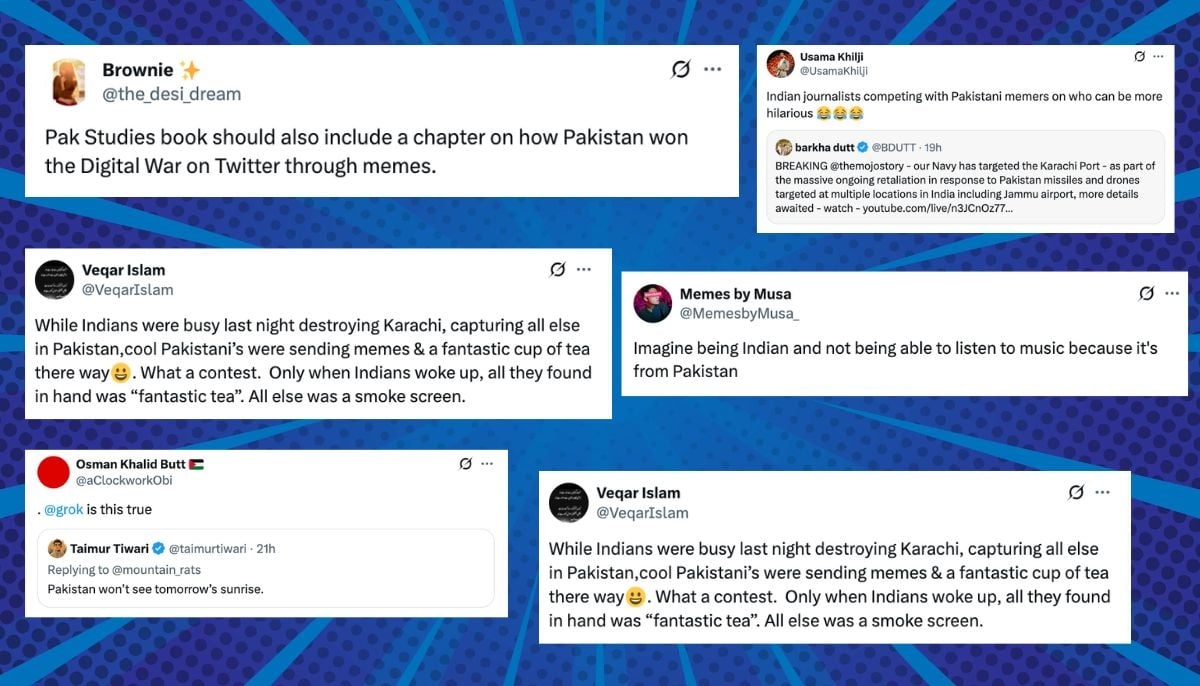
He also mentioned that both nations could resort to smaller-scale attacks, with the sole purpose of demonstrating their ability to go to war (just to show their military prowess), knowing full well that, as nuclear powers, they cannot afford the damage. Because even if a war breaks out, the aftermath would be so severe that even the winning nation wouldn't be able to bear the extent of destruction.
Therefore, there has been a distinct shift from military clashes to political hostilities, and even the general public has accepted this. That’s why you’ll see people rushing to their keyboards faster than towards their army. And with that, Azfer concluded his trail of thought.
This gives us a slightly different perspective on why our citizens are not rattled by the news and are shrugging off India’s threats.
After days of incessant aggression from our hostile neighbour across the eastern border, a long trail of entertaining memes and jokes — even in the midst of a full-fledged offensive by India, a ceasefire today also saw Pakistani nation, particularly memers handling the swift developments with a chuckle.
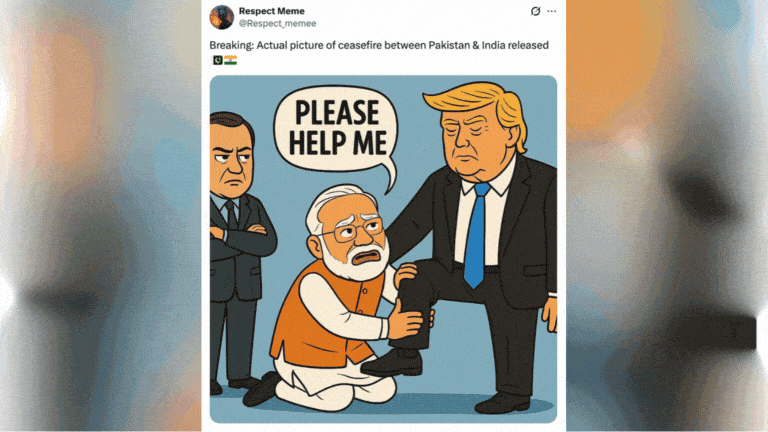
Whatever the political atmosphere, there is no doubt in agreeing with the person suggesting that a new national award should be bestowed upon the digital soldiers of Pakistan, calling it "Tamgha-e-Memetiaz".
However, at the end of the day, these rising tensions are no laughing matter, and one should hope that this friction and spread of misinformation gets contained. But when worst comes to worst, at least we know that our line of defence on the internet is stronger than any other weapon.
Fakeha Batool is a student of BS Applied Psychology.
Header and thumbnail illustration by Geo.tv



